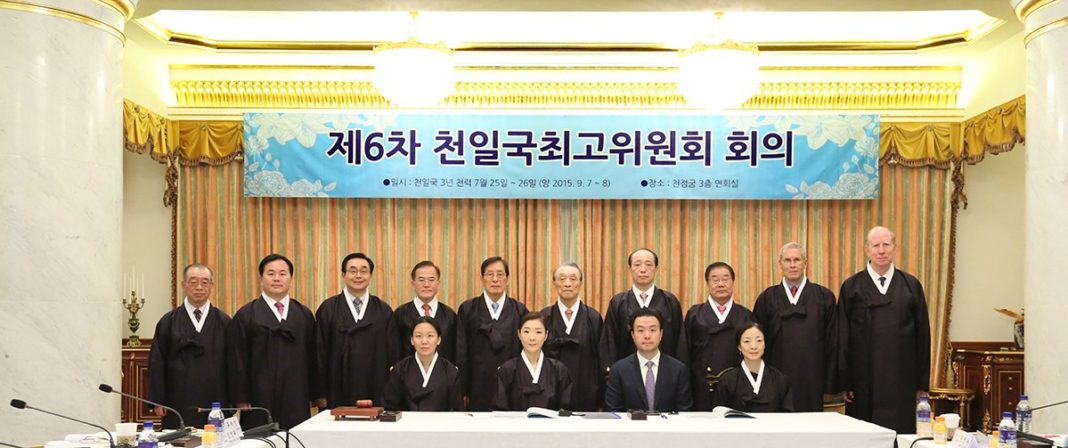The Cheon Il Guk Constitution assigns responsibility for final decisions on earth to the Supreme Council. The Council is responsible for decisions regarding the nation’s identity and ideals, citizens’ rights, duties and faith, matters relating to the wons, Constitution amendment, and other matters that arise by law or circumstance.
In rendering decisions, it strives for unanimity but, in extremis, the agreement of ten members is sufficient. In either case, decisions are subject to the approval of True Parents.
“The Supreme Council enables people and institutions to form “one integrated and interdependent society.“
The True Parents appoint the Council’s Chair, Vice-Chair and eleven members from among qualified candidates. Qualifications, except that the Chair shall be a member of the True Parents’ family, remain to be specified. The Chair’s term is seven years, with no limit to reappointment. The other twelve have up to three four-year terms.
In the Divine Principle model for government, “the desires of God,” the brain, come as “subtle commands …through Christ, who corresponds to the spinal cord, and God-loving leaders, who correspond to the peripheral nervous system.” This integrates the Council, the spinal cord, with office-holders and leaders of family, tribe and larger units, the peripheral nervous system. The Supreme Council thereby enables Cheon Il Guk’s people and institutions to form “one integrated and interdependent society.”
The Constitution looks to the future, when the Council “shall vicariously execute the authority of True Parents” at the time of their “relinquishment of authority or incapacity.” What is the meaning of vicarious?
In Christian theology, vicarious relates to a horizontal event renders vertical power beyond time and space. Jesus’ sacrifice on the cross was a horizontal event that renders God’s forgiveness vicariously through the church. Likewise, True Parents’ victory renders God’s decisions vicariously through the Supreme Council.
“This government will work only if Christ at the Second Advent indeed restores our vertical relationship with God. “
This is a spiritual process and thus depends on the object partner’s filial heart. As Divine Principle teaches, the ideal government will work only if Christ indeed restores our vertical relationship with God.
Divine Principle goes on to teach that our vertical relationship with God is the root of our loving relationships with each other. This exactly describes True Parents’ design of HJ Cheonwon, the environment in which our Hyo Jeong, filial heart for God and True Parents, brings us and our institutions into oneness.
(Citations: Exposition of Divine Principle pp. 361-3; the title of this post refers to a sign on US President Harry Truman’s desk. The American expression for blaming someone else for a problem is to “pass the buck.” On Truman’s desk was a sign, “The Buck Stops Here.”)
-TH







